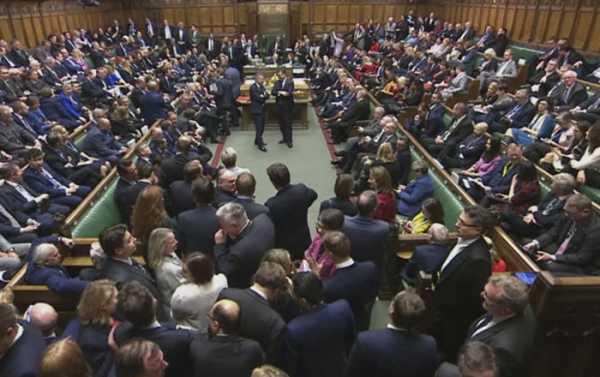
As the House of Commons voted in favour of Prime Minister Boris Johnson’s Brexit deal on Friday, the UK took a decisive step towards leaving the European Union by the 31 January deadline.
In a demonstration of Boris Johnson’s newly-won thumping power since winning a decisive victory in the 12 December general election, the Conservative Prime Minister’s Brexit deal cleared its first Parliamentary hurdle on Friday.
The UK House of Commons voted 358 to 234 in favour of the government’s EU Withdrawal Agreement Bill, as Johnson called for unity to deliver on his pledge to take the country out of the European Union on 31 January.
Breaking the Gridlock
It isn’t all that surprising that Johnson has finally broken through the gridlock that dominated UK politics since the 2016 referendum, getting his withdrawal deal through Parliament, said Chris Stafford, a doctoral researcher at the University of Nottingham in the Politics and International Relations Department, elaborating:
‘Controversial Divorce Deal’
Boris Johnson’s previous Brexit deal had been narrowly approved by the Commons in October, however, a government proposal to rush the bill through its remaining stages in just three days was voted down, prompting the Prime Minister to call a snap general election in the hopes of winning a much-needed Commons majority. Since then, the bill has been amended.
The Withdrawal deal is of course controversial, believes Chris Stafford, pointing out that despite the Tory election triumph on promises to get the UK out of the EU, the country is “still very much divided over the issue of Brexit”.
The Withdrawal Agreement is not a full “deal”, warns Professor Alex de Ruyter, Director of the Centre for Brexit Studies at Birmingham City University.
It tackles, says the Professor, a narrow set of issues necessary for the UK to leave the EU, such as the UK’s (and the EU’s) financial obligations as a result of being a member, certain guarantees for the citizens on both sides and a special status for Northern Ireland to prevent a hard border on the island of Ireland.
The Professor points out:
‘No Room for Manoeuvre’
Regarding the several amendments made to the Bill, Dr. Chris Stafford singles out the removal of a clause that strengthened workers’ rights and reduced the opportunity for Parliamentary scrutiny of the Brexit process.
As to the fact, the revised bill also legally prohibits any further extension to the withdrawal process, signifying that the UK will leave the EU regardless of whether it has a trade deal, Dr. Stafford said:
More ‘Uncertainty’ Ahead
Ratification of the withdrawal agreement will continue after Christmas, following which, believes Professor Alex de Ruyter, negotiations on the future relationship will begin in earnest, adding:
After its ratification, the withdrawal agreement will be voted on by the House of Lords, and move on to receive Royal Assent from Buckingham Palace.
Under the Brexit bill, the UK will formally complete its withdrawal from the EU at the end of January, and reach a trade agreement with Brussels by the end of 2020.
During the transition period, the UK will continue to remain a de facto member of the political and economic bloc.
The views and opinions expressed in the article do not necessarily reflect those of Sputnik.
Sourse: sputniknews.com
0.00 (0%) 0 votes

































